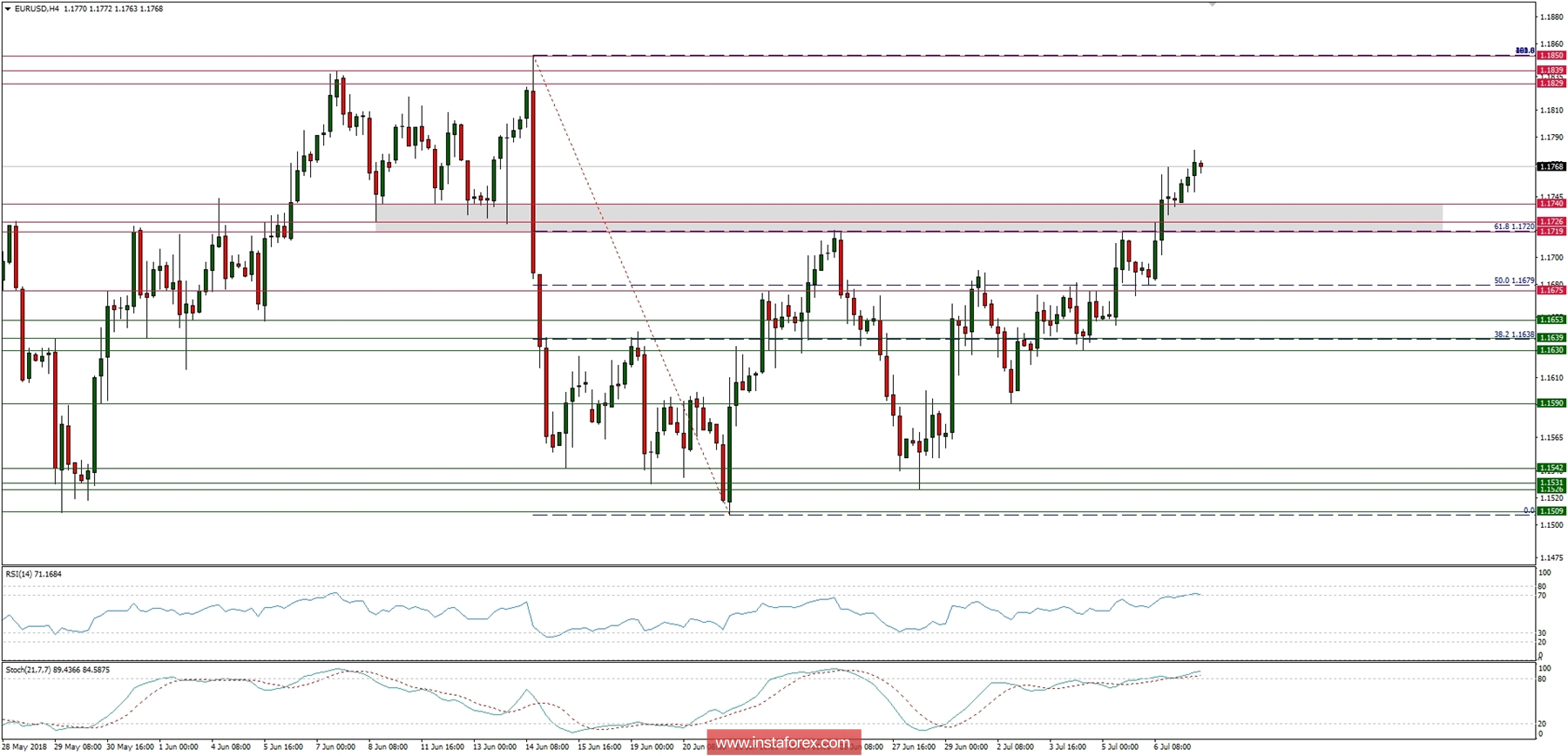The most important information of the Friday session was undoubtedly the publication of a report from the American job market by BLS. After the result of 223,000 new posts in the non-farm sector (NFP) from May, in the June report economists expected a slightly worse result at the level of 200,000.
According to the latest report from the American Labor Office (BLS), the change in employment in the non-agricultural sector (NFP) in June 2018 amounted to +213,000 jobs, which is better than forecast. In addition, the May report from 223,000 was also revised positively up to 244,000.
It turns out, however, that despite forecasts assuming maintenance of monthly wage growth rate at 0.3% and its appreciation in annual terms to 2.8%, finally wage growth in monthly terms has slipped to + 0.2% and in annual terms, it remained at its current level of 2.7%.
What is worse, despite the forecasts assuming maintaining the unemployment rate at the lowest level in 18 years, the level of 3.8%, in the end, it was up by 0.2 pp up to 4.0%. It is worth recalling that, despite the fact that the market consensus assumed maintaining the unemployment rate, some economists suggested that it would drop to 3.7%.
In conclusion, despite the better than expected NFP headline figure, the market participants have focused on poor wages again, which might be the main reason behind the spike down on USD pairs across the board.
Let's now take a look at the EUR/USD technical picture at the H4 timeframe at the first trading session after the NFP Payrolls data were published. The market continues to grow higher above the 61% Fibo and currently, the local high was made at the level of 1.1790. The strong and positive momentum supports the bullish case and it looks like the bulls will test the siwng high at the level of 1.1850 soon. The nearest support is seen at the level of 1.1740.

 English
English 
 Русский
Русский Bahasa Indonesia
Bahasa Indonesia Bahasa Malay
Bahasa Malay ไทย
ไทย Español
Español Deutsch
Deutsch Български
Български Français
Français Tiếng Việt
Tiếng Việt 中文
中文 বাংলা
বাংলা हिन्दी
हिन्दी Čeština
Čeština Українська
Українська Română
Română

